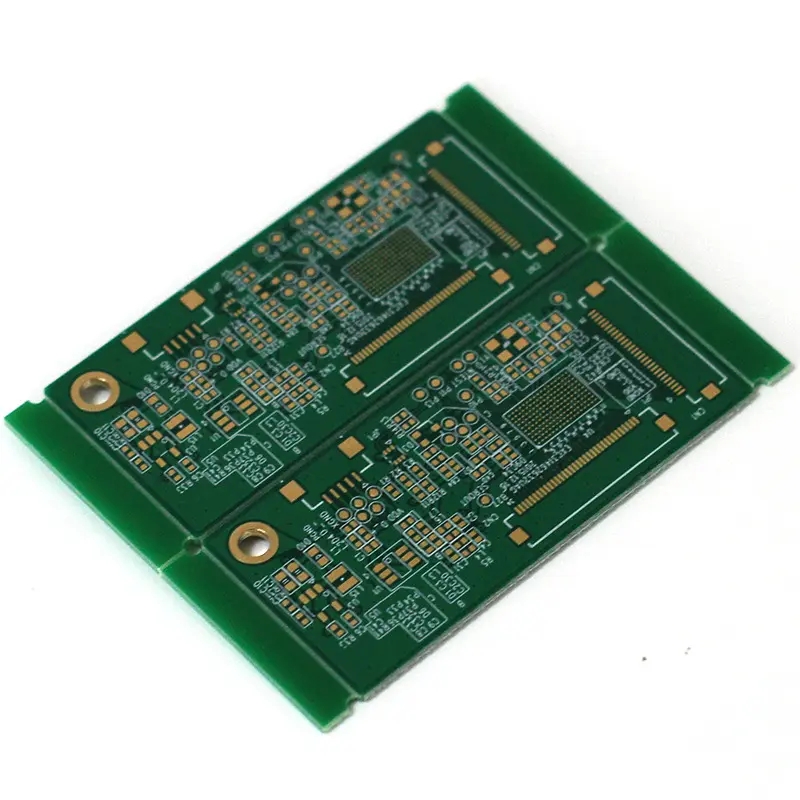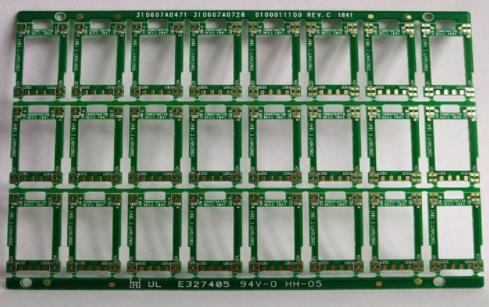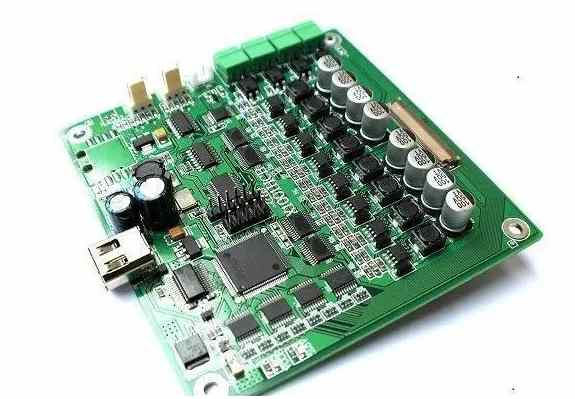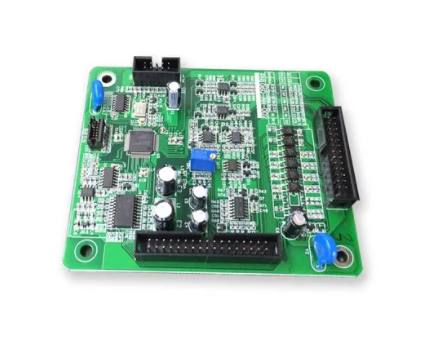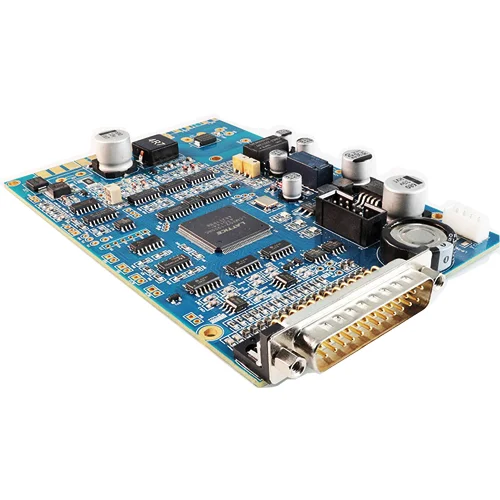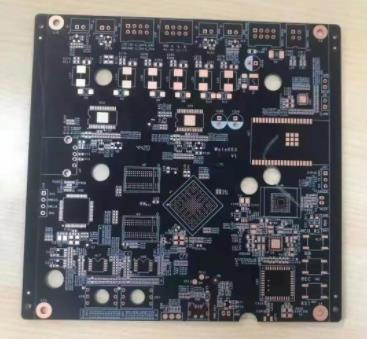
Electronic engineer explains the multilayer high-frequency composite board
Circuit board manufacturing, circuit board design and PCBA processing manufacturers explain to you the electronic engineers explain the multilayer high-frequency composite board
Compared with the data of traditional multilayer PCB board, the key characteristics of multilayer high-frequency composite board are very different. It can not only select multilayer high-frequency PCB materials mixed with high-frequency materials and FR4, but also select multilayer PCB materials mixed with high-frequency materials with different dielectric constants. With the development of technology, the hybrid structure of HF board+FR4 is also known by more and more people. Together, it also brings more benefits and challenges for designers and manufacturers.
The selection of high-frequency mixed voltage multilayer PCB materials mainly considers the following three factors: price, reliability and electrical characteristics. The price of high-frequency circuit board is generally higher than FR4. Sometimes a combination of two different materials is used to solve the cost problem. In most cases, the layers related to circuits in multilayer PCB boards (multilayer high-frequency hybrid boards) are more important, while other layers are less critical. In this case, FR4 data with low price can be used in layers unrelated to the circuit, while high-frequency boards with high price can be used in layers related to the circuit.

When there is one kind of data with high CTE characteristics in the mixed multilayer board (multilayer high-frequency mixed plate) data, in order to improve the reliability, it is necessary to consider the mixed multilayer PCB (multilayer high-frequency mixed plate). Some high-frequency PTFE materials have good CTE characteristics, but their reliability is the focus of the demand. When the FR4 with low CTE characteristics and the data with high CTE form a multilayer PCB, its CTE composition needs to be within an affordable scale.
In order to achieve better electrical characteristics, some mixed multilayer PCB data (multilayer high-frequency mixed plate) also include data of different dielectric constants. For example, for some couplers and filters, the use of information with different dielectric constants often has greater advantages.
Although there are some compatibility problems when RF4 is used with high frequency circuit board (multilayer high frequency hybrid board), this usage is becoming more and more. Together, some issues related to production also need more attention.
The high frequency data used in the hybrid multilayer data structure and the data used in the circuit making are very different in the manufacturing process. If the high frequency information of PTFE substrate is selected from the process of circuit manufacturing, such as the processing of hole rotation and PTH electroplating, many problems will be caused. There is no big problem in the application of the standard FR4 circuit board manufacturing process for hydrocarbon substrate materials.
The combination of FR4 and hydrocarbon data generally has only a few process problems. It is mainly reflected in hole rotation and lamination. In order to turn holes on this laminated structure, it is generally required to select experimental design to establish an appropriate feed/speed model. The lamination problem is mainly caused by the great difference between the compression curve of FR4 prepreg and that of high-frequency data prepreg. To ensure the soundness of the plate, some methods can be considered and selected when FR4 and hydrocarbon semi curing sheet are used. One of the methods is to replace FR4 prepreg with high-frequency prepreg and select the appropriate pressing curve. The price of high-frequency prepreg and high-frequency substrate are relatively cheap, and if all the prepreg use the same information, the lamination cycle will be relatively simple. If the FR4 prepreg cannot be replaced, it must be laminated in sequence. Put the lamination cycle curve of FR4 prepreg in the first place, and the lamination cycle curve of high-frequency data in the back.
The use of FR4 and high-frequency PTFE circuit data to form a hybrid multilayer PCB (multilayer high-frequency mixed board) will generally face more challenges. However, there will be some exceptions. As there are some varieties of PTFE based materials, compared with other PTFE materials, the circuit manufacturing process is more simple. Although the information of PTFE substrate added with ceramic is less concerned with the circuit manufacturing process than that of pure PTFE substrate, hole rotation, PTH treatment and dimensional stability are several matters that must be considered.
PTFE is mainly considered when turning holes with PTH, which is softer than FR4. When the rotary hole passes through the junction surface of soft and hard data, the soft data will be stretched to a certain length on the hole wall of PTH. This may lead to a very serious reliability problem. In general, through experimental design and research on the east-west life of the rotary hole, the correct feed and rotary speed can be obtained. In many cases, this situation does not occur when the rotary drilling tool is first used. Therefore, the influence of this problem can be minimized by controlling the life of the rotating hole.
The electroplating treatment of PTH holes of two types of data should be paid attention to. Plasma cycle may require two different cycles or include one cycle at different stages. FR4 data is processed in the first Plasma cycle, and PTFE data is processed in the second Plasma cycle. Generally, CF4-N2-O2 gas is used for the Plasma process of FR4, and helium or hydrazine gas is used for PTFE. In order to improve the wet solubility of the through hole wall, it is proposed to use helium to process PTFE data. If the wet process preparation is used in PTH processing, first use potassium permanganate to process FR4 data, and then use sodium naphthalene to process PTFE data.
Scale stability, or scaling, is also a problem faced by PTFE and FR4 mixed data (multilayer high-frequency composite laminate). After the maximum possible reduction of the mechanical pressure on the PTFE data, it can reduce its generation. It is not recommended to wipe the data forcibly, because it will increase the random mechanical pressure of the data. The chemical finishing process is proposed to prepare for the subsequent copper treatment process. The thicker the PTFE data, the less the problem of scale stability. PTFE materials with glass woven fabric added will have better dimensional stability.
In a word, there will be a few compatibility problems in the production of hybrid multilayer PCB (multilayer high-frequency hybrid board) composed of FR4 and high-frequency data. However, some key points in the circuit manufacturing process need to be specially handled. Circuit board manufacturing, circuit board design and PCBA processing manufacturers will explain to you that the electronic engineers will explain the multilayer high-frequency composite board.


